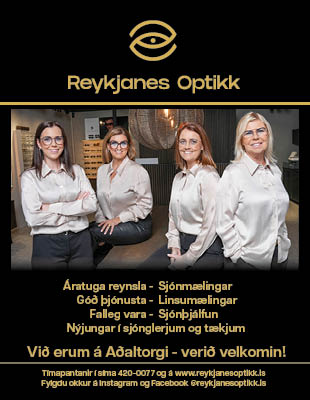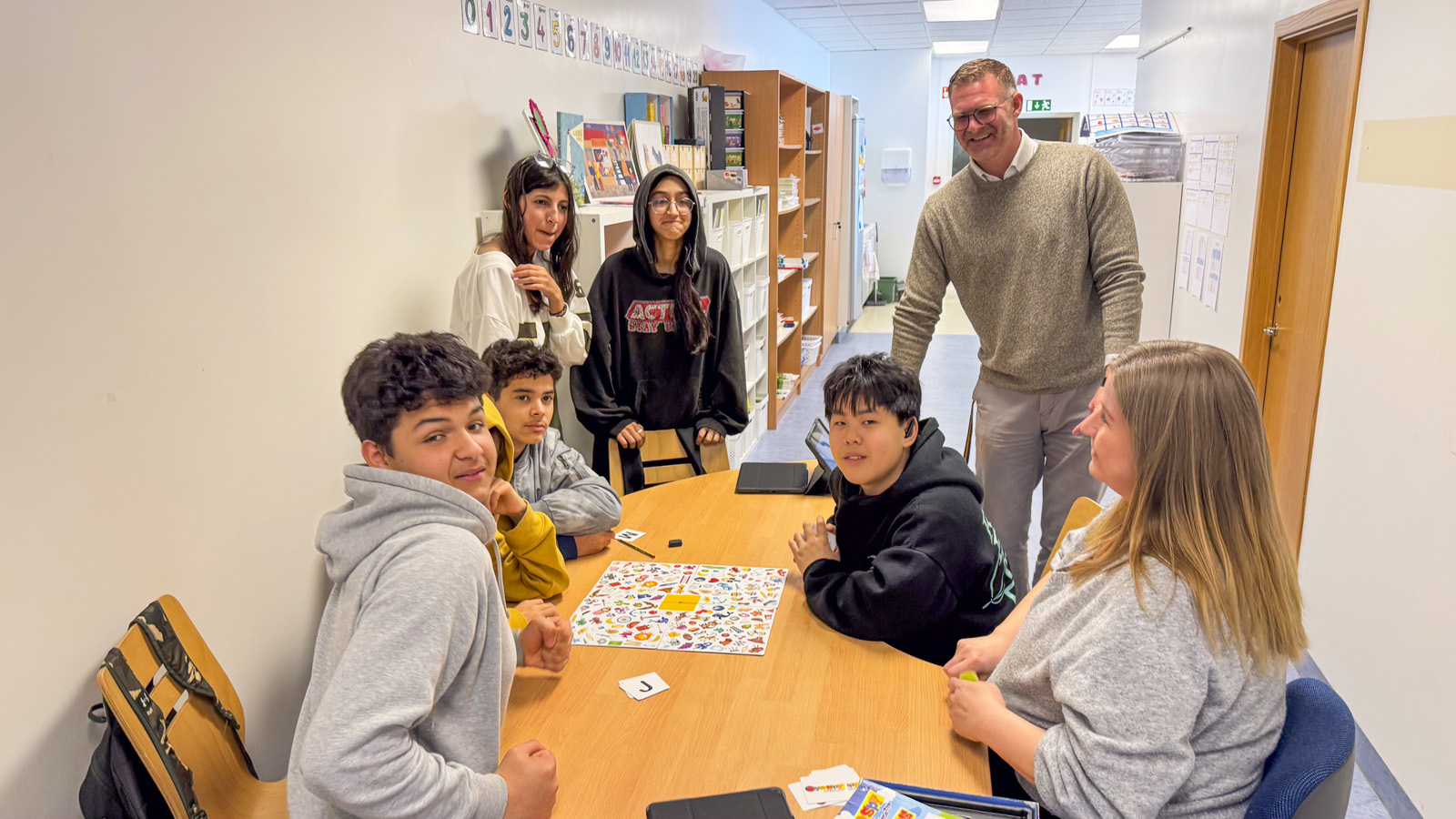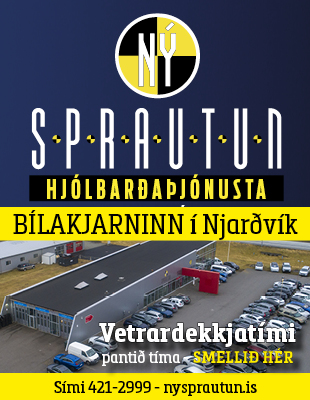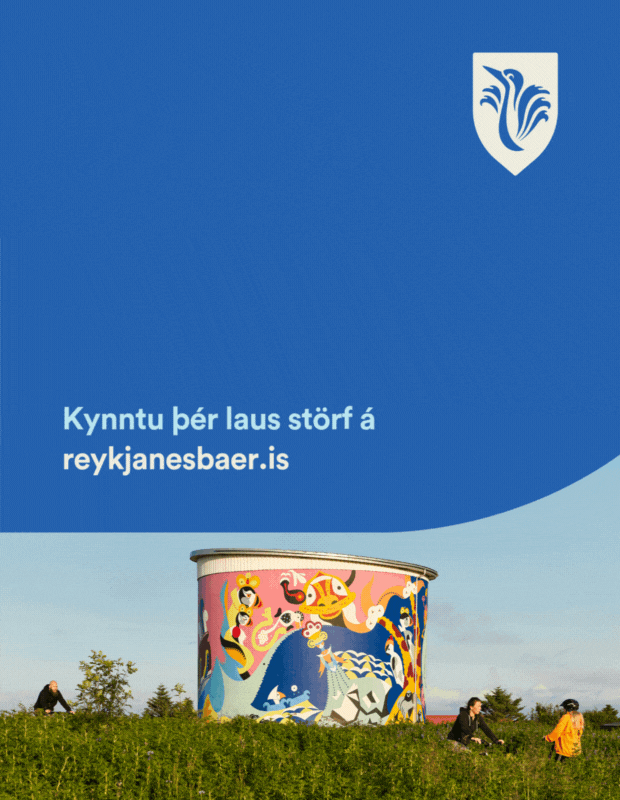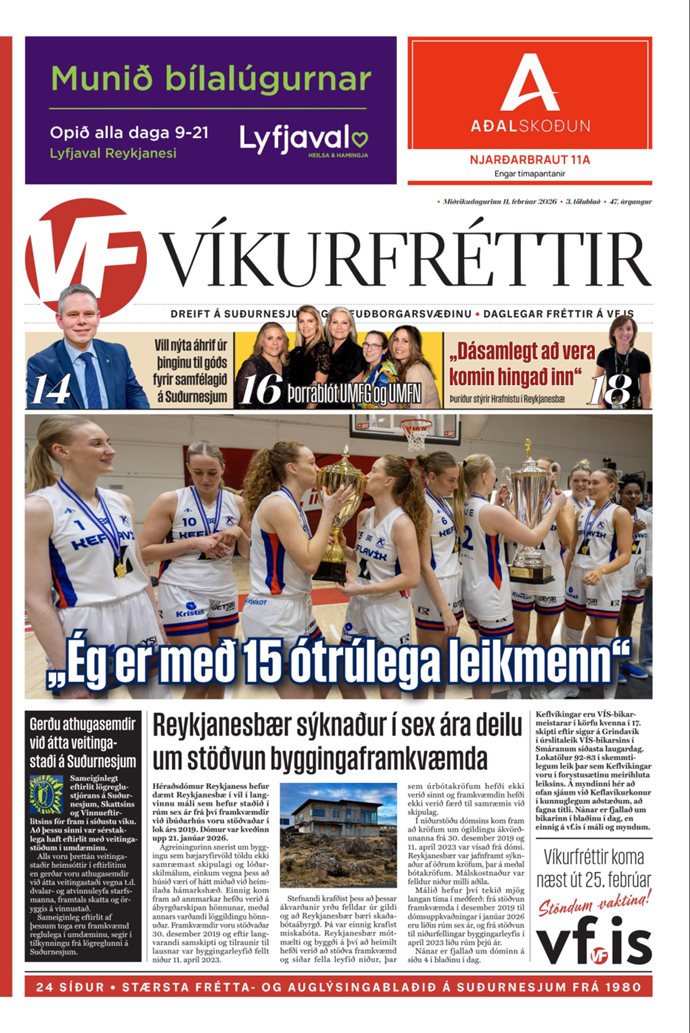Um þriðjungur ungmenna telur sig hafa næga þekkingu til að taka ákvarðanir um framtíðarstarf
Evrópskt samstarfsverkefni styrkir starfsráðgjöf fyrir ungt fólk á Íslandi
Um þriðjungur ungmenna telur sig hafa næga þekkingu til að taka ákvarðanir um framtíðarstarf. Um helmingur er óöruggur og fimmtungur telur sig skorta nauðsynlegar upplýsingar. Þetta kemur fram í rannsókn sem er evrópskt samstarfsverkefni en Háaleitisskóli í Reykjanesbæ er fulltrúi Íslands þar en samstarfsaðilar hans í verkefninu eru Myllubakkaskóli og 88 Húsið í Reykjanesbæ.
Verkefnið „Open Yourself for Career Skills“ miðar að því að efla óformlega starfsráðgjöf, nýta stafræna tækni og auka nýsköpun í ungmennastarfi.
Ungt fólk stendur oft frammi fyrir stórum spurningum þegar skólagöngu lýkur – hvert á að halda næst, í nám, vinnu eða annað? Þrátt fyrir að formleg ráðgjöf sé til staðar í skólum, finnur stór hluti ungmenna enn fyrir skorti á stuðningi og hagnýtum upplýsingum þegar kemur að því að taka ákvarðanir um framtíð sína.
Til að bregðast við þessu hófst árið 2024 evrópskt samstarfsverkefni „Open Yourself for Career Skills“, sem hefur það markmið að efla óformlega starfsráðgjöf og gera hana aðgengilegri með því að nýta stafræna tækni og nýstárlegar aðferðir í ungmennastarfi.
Verkefnið stendur yfir í 24 mánuði – frá september 2024 til ágúst 2026 – og sameinar samstarfsaðila frá Litháen, Lettlandi, Íslandi og Spáni.
Háaleitisskóli í Reykjanesbæ tekur þátt fyrir hönd Íslands
Íslandsfulltrúi í verkefninu er Háaleitiss óli í Reykjanesbæ, sem tekur virkan þátt í rannsóknarvinnu, þróun nýrra kennsluaðferða og tilraunum með stafrænar lausnir í starfsráðgjöf.
Rannsóknarhluti verkefnisins var leiddur af Mykolas Romeris háskóla (MRU) í Litháen, í samstarfi við rannsóknarstofu á sviði opinberrar nýsköpunar, og kannaði stöðu, þarfir og áskoranir ungs fólks á aldrinum 13–19 ára í fimm Evrópulöndum.
Helstu niðurstöður rannsóknarinnar
Niðurstöður sýna að aðeins um þriðjungur ungmenna telur sig hafa næga þekkingu til að taka ákvarðanir um framtíðarstarf. Um helmingur er óöruggur og fimmtungur telur sig skorta nauðsynlegar upplýsingar. Í fyrsta fasa verkefnisins voru tekin viðtöl við nemendur í 8.–10. bekk ásamt kennurum og öðru starfsfólki sem vinnur með unglingum.
Ungt fólk leggur áherslu á að starfsráðgjöf eigi að fara fram í öruggu og stuðningsríku umhverfi, þar sem hægt er að ræða vonir og efasemdir á opinskáan hátt. Einnig kom fram að upplýsingamiðlun ein og sér dugar ekki – ungt fólk þarf persónulega endurgjöf, hagnýtar æfingar og leiðsögn sem hjálpar þeim að uppgötva eigin styrkleika og áhugasvið.
Rannsóknin sýndi einnig að stöðurnar eru mismunandi eftir löndum:
Í Litháen og Lettlandi eru helstu áskoranir í dreifbýli, þar sem stuðningur er brotakenndur og ráðgjöf utan skóla erfitt að fá.
Á Íslandi reyndist staðan veikust – á rannsóknarsvæðinu voru ungmennamiðstöðvar nánast óvirkar, og lítið um stuðning utan skóla.
Á Spáni er kerfið sterkara – þar er ráðgjöf skipulegri á sveitarstjórnarstigi og mentorakerfi algengari.
Stafrænar lausnir fyrir betri aðgengi og samskipti
Í kjölfar rannsóknarinnar stendur verkefnið nú fyrir þróun snjallsímaforrits, sem gerir ungmennum kleift að fá persónulegar upplýsingar, ráðgjöf og bein samskipti við ráðgjafa á einfaldan hátt.
Með því er markmiðið að færa starfsráðgjöf nær daglegu lífi ungs fólks og gera hana sveigjanlegri og aðgengilegri – hvort sem þau eru í skóla, vinnu eða búi í dreifðum byggðum.
Alþjóðlegt samstarf eflir íslenskt ungmennastarf
„Open Yourself for Career Skills“ veitir Íslandi einstakt tækifæri til að deila reynslu og læra af öðrum Evrópulöndum. Með samstarfi við stofnanir í Litháen, Lettlandi og á Spáni fær íslenskt ungmennastarf tækifæri til að nýta nýjar hugmyndir, þróa stafrænar aðferðir og efla tengsl milli skóla og samfélags.
Verkefnið er styrkt af Evrópusambandinu (Erasmus+ Youth in Action).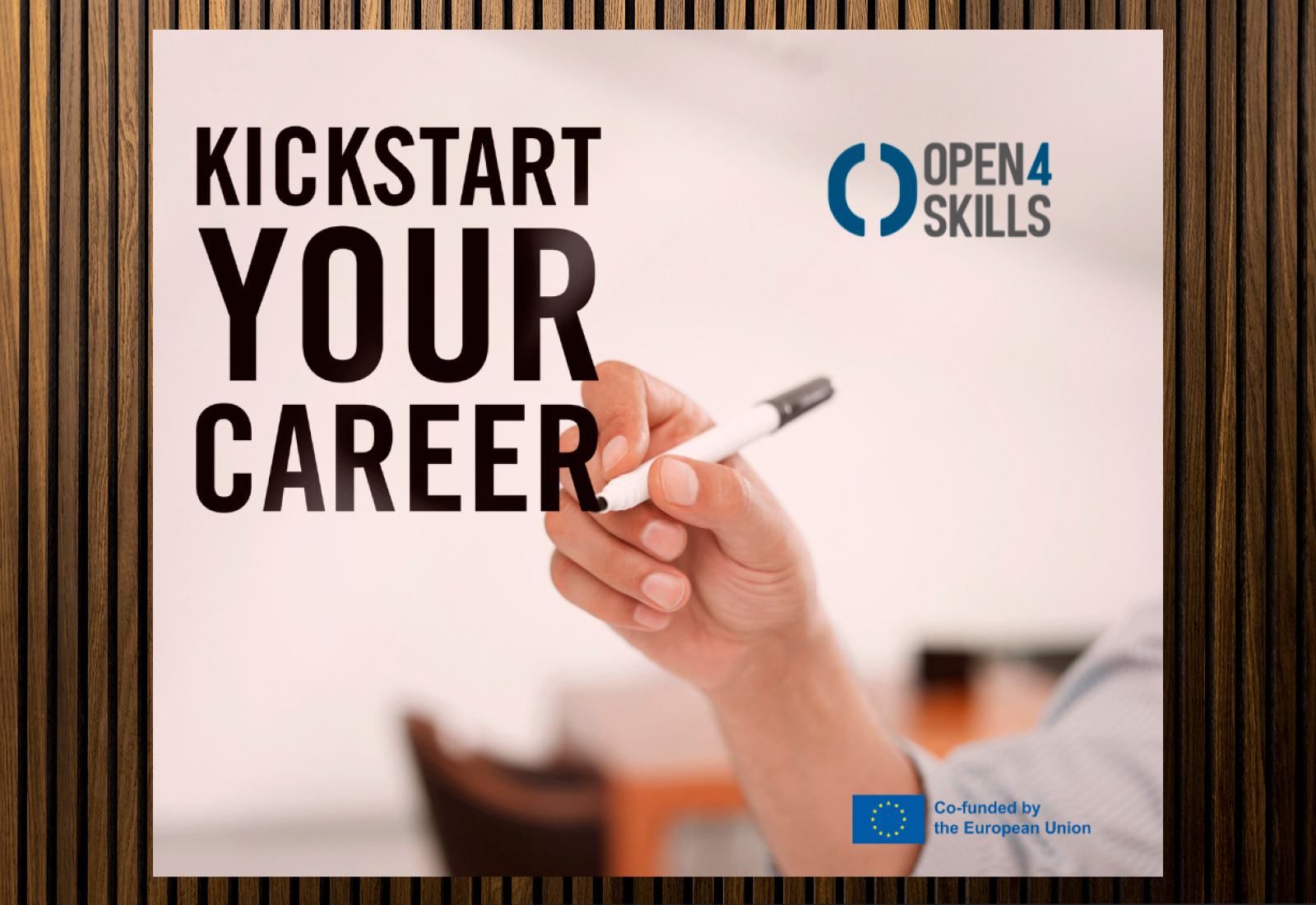
After finishing school – what’s next?
Most young people in the regions search for this answer on their own, but they do not always receive the support they need. Although formal counselling is offered in schools, many young people up to the age of 19 still feel they lack information and practical assistance to make career decisions. These trends were revealed by the international project Open Yourself for Career Skills, whose research was carried out by researchers from the Mykolas Romeris University Public Governance Innovation Lab, in cooperation with the Institute for Public and Business Development and partners in Latvia, Iceland, and Spain. The study was based on the European Union’s career counselling guidelines, which highlight four main areas: self-awareness, information seeking, career planning, and career management.
Young people’s career choices are closely tied to their living environment and available opportunities. For those living in the regions, decisions often have to be made under conditions of limited access to counselling services and a narrower range of study or employment options. In such circumstances, non-formal education becomes especially important – it provides additional opportunities for self-discovery, skill-building, and individual support. The Open Yourself for Career Skills study offered a deeper insight into this situation, highlighting the main challenges faced by young people and the youth workers who advise them.
The analysis showed that what matters most for young people is the possibility to consult in a safe and supportive environment, where they can openly share their expectations and doubts. Young people emphasized that mere information about studies or professions is not enough – they need quality feedback, individualized advice, and practical activities that help them better understand their strengths and available choices. Such conditions allow counselling to become an effective process that not only provides answers to specific questions but also develops the ability to plan a career independently.
Survey data show that only one third of young people feel they have enough knowledge to make career decisions, almost half doubt their preparedness, and one fifth openly admit they lack sufficient information. Different age groups emphasized different needs – younger students highlighted the importance of self awareness and information, while older youth (17–19 years old) stressed the need for planning and decision-making support. Young people in the regions more often indicated that school counselling is too general and does not meet individual needs. Youth workers who participated in focus group discussions emphasized that their ability to provide quality support is often limited not only by heavy workloads or lack of resources, but also by the absence of systematic training on career counselling in non-formal education spaces. As a result, many counsellors acquire knowledge in this field independently – relying on their own experience, searching for information online, or learning from colleagues’ practices. At the same time, they see the strong potential of non-formal education to help young people discover their strengths, gain practical skills, and build confidence in their choices.
Based on the findings, it is recommended to strengthen the career counselling system in the regions, with particular attention to non-formal education spaces. It is important to ensure consistent training for youth workers in career counselling, as their competences are currently often built in a fragmented way – through self-learning or personal experience. It is also necessary to increase access to individual consultations, encourage practical activities and mentoring programs, which would help young people feel more confident in their decisions. Finally, it is recommended to integrate the formal and non- formal sectors more closely, so that young people receive coherent, consistent, and high- quality support when choosing a career path.
Despite overall trends, the study also revealed differences between countries. In Lithuania and Latvia, the main challenges stem from limited counselling in the regions, where school-based support is often fragmented and additional counselling services outside schools are difficult to access. In Iceland, the situation appeared the weakest – in the region studied, youth centres are practically inactive, so opportunities for support outside of schools are very limited. Meanwhile, in Spain, the regional system is stronger: more counselling services are offered at the municipal level, and mentoring practices are applied more widely and systematically. These differences show that while the challenges are similar, the national context determines the scope and quality of opportunities available to young people.
These similarities and differences indicate that youth career counselling is a challenge not only for one country but for all of Europe. The international Open Yourself for Career Skills project created an opportunity to compare experiences, share best practices, and jointly seek solutions to help young people in the regions make strong, confident career choices. Based on the research results, the next step of the project is to create a mobile application to ensure broader access to information, personalized feedback, and better communication between young people and counsellors. This opens up opportunities to make counselling more accessible and closer to young people’s everyday lives, while international cooperation provides the space to test, improve, and adapt these solutions across different European regions.
Researchers of the Public Governance Innovation Lab, Mykolas Romeris University: Lect. Justinas Staliūnas, Prof. Dr. Andrius Stasiukynas
More information: https://tinyurl.com/Open4SkillsStudyReport
Presentation of study report: https://tinyurl.com/PresentationStudyReport

